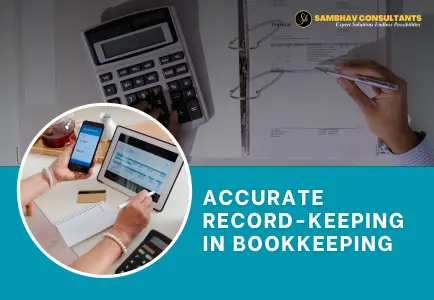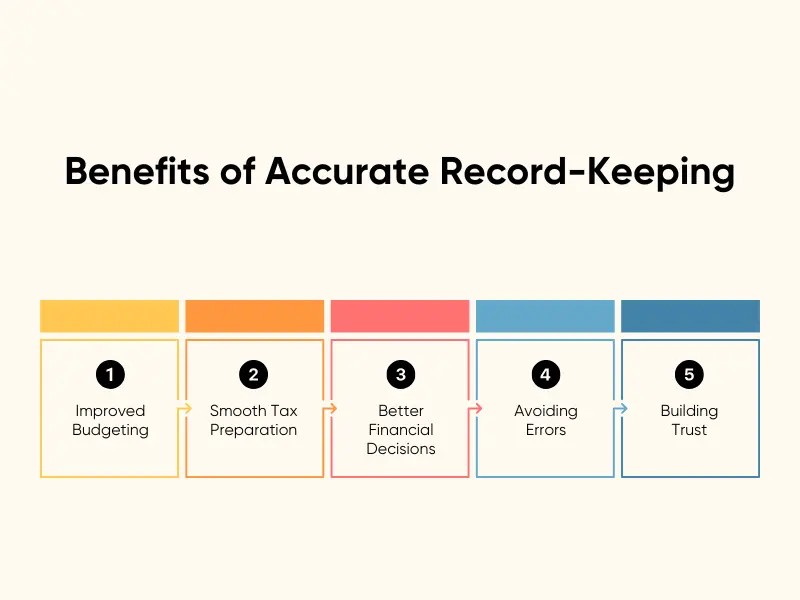

Accurate record-keeping is the most important part of effective bookkeeping. Bookkeeping is tracking finances and organizing the money earned and spent. Businesses and individuals make smart financial decisions, see patterns in spending, and understand their financial health by keeping accurate records. Without organized and clear records, we wouldn’t know where the money is going and if the spending is in line with financial goals.
Bookkeeping becomes an essential tool to understand the finances when record- keeping is done accurately. All transactions, purchases, sales, or bill payments should be recorded. Accurate record-keeping helps no transactions to be forgotten, and reliable financial reports and summaries are produced.
Accurate records are vital for making budgets and planning for the future. This makes it easier to see where the adjustments are required with a clear view of expenses and income. Good record-keeping offers the data required to make strategic decisions and prevent unnecessary spending.
1. Improved Budgeting: Accurate record-keeping helps in setting realistic budgets by showing clear patterns of spending and income. This can help in planning for both daily expenses and future savings.
2. Smooth Tax Preparation: When records are up-to-date and accurate, preparing taxes becomes easier and faster. It reduces the chance of errors and ensures that all expenses and earnings are correctly reported.
3. Better Financial Decisions: With accurate records, it’s easier to make decisions based on facts rather than guesses. This could mean spotting areas where costs could be reduced or finding ways to increase profits.

4. Avoiding Errors: Accurate record-keeping means less chance of errors that can lead to misunderstandings or financial trouble. When each transaction is correctly recorded, there’s a clear trail for every dollar spent or earned.
5. Building Trust: For businesses, accurate record-keeping builds trust with partners, customers, and suppliers. Clear and organized records show that finances are managed responsibly.
Record Every Transaction: Even small purchases or payments should be noted down, as these small amounts can add up over time.
Organize Receipts and Invoices: Keep all receipts and invoices in one place, either physically or digitally, for easy access. This helps confirm records if questions arise later.
Use Bookkeeping Software: Many people find bookkeeping software helpful for accurate record-keeping. Software can organize, categorize, and store information in one place, making it easier to keep everything up to date.

Review Regularly: Check records weekly or monthly to ensure everything matches bank statements and there are no missing entries.
Separate Personal and Business Finances: For business owners, keeping personal and business finances separate avoids confusion and makes record-keeping much clearer.
Successful bookkeeping is based on accurate record keeping. This ensures that finances are organized, helps with budgeting, and makes tax time easier. The simple, powerful habit of good record-keeping allows you to keep track of every transaction, stay on budget, and make informed financial decisions. If you’re someone who wants to take control and clarity over your finances, accurate record-keeping is a great place to start.